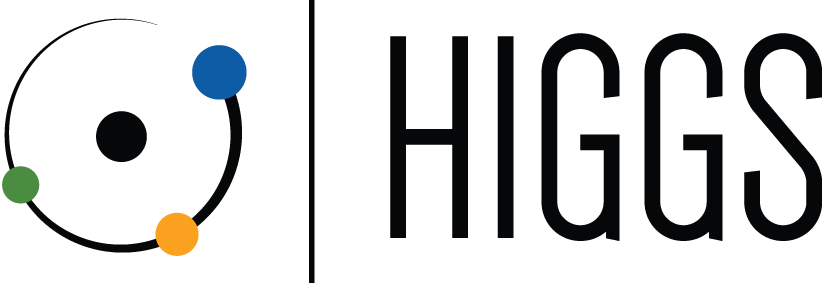
Interview: U.S. Embassy in Athens
Mr. Michael Snyder, Cultural Attaché of the U.S. Embassy in Athens, answers a few of our questions on NGO support.
1. Could you please let us know in which ways do you support nonprofit organizations? Do you have any priorities?
The Cultural Section of the US Embassy in Athens provides grants to non-profit organizations that organize educational programs in several areas, targeting different audiences. Every year we explore a different area. However, the programs we support always focus on issues that are particularly relevant to our Greek partner organizations and generally to the needs of Greece. In light of both the economic crisis and the latest refugee crisis, many of our recent programs aim to provide skills and reinforce non-profit organizations assisting disadvantaged communities, support young people by giving them advice on entrepreneurship and job search, improve refugees’ education to promote their integration into society, and so on.
Some of the programs that we have co-organized and supported in recent years include the Business Coaching Center of PRAKSIS organization, which provides services to young entrepreneurs from economically disadvantaged groups, educational programming workshops for young girls CodeGirls who have taken place in several cities of Greece, the annual Conference on Museums organized in collaboration with the Benaki Museum for the training of professionals working in cultural institutions, a series of seminars for students and young entrepreneurs aimed at improving their Presentation Skills in collaboration with Mindspace, and the scholarship program for refugees “Education Unites: From Camp to Campus”.
We also support several artistic projects with the participation of US artists, such as the recent American Film Showcase program that brought two distinguished filmmakers to Greece, who also participated in screenings and discussions in the Aegean Docs Festival in Lesvos and Exile Room Athens.
In addition to providing partial funding to assistance programs, we help Greek organizations come into contact with relevant US organizations for possible collaborations. We believe that our work helps to create bridges between Greece and America, offering knowledge and assistance to both sides.
2. How can an NGO that wishes to collaborate with the Embassy get in touch with you?
NGOs may call our Cultural Department on 2107202300 or email us at [email protected]. More information on the types of programs we support is available on the Embassy’s Facebook page.
3. Do you accept applications for funding projects? If so, what information do you need to receive during the first contact and how long does it take to review applications?
Applications for funding should be submitted at least five months before the start of the program. Our programming is annual and starts at the beginning of autumn. Organizations are required to fill a few forms, which are available upon request. All programs we support are required to have a connection with the US, for example by involving a US specialist or speaker, or by cooperating with a US organization etc.
4. What are the criteria you consider to assess the work of an organization and the impact of its performance?
The organizations we collaborate with should have a clear legal status and be nonprofits. For their evaluation we examine previous programs, other stakeholders they might work with, and organizations that support them. Our criteria include the organization’s viability, a proper financial management, experience, and the number of their beneficiaries.
5. For how long do you provide support to NGOs and for what reasons could your support be suspended?
Our support usually covers one year of activities, always within the framework of a specific program. We do not cover operating and fixed costs of our partners.
6. What initiatives do you believe are missing in the Greek NGO landscape?
This is something Greek organizations are more familiar with, but from our experience of cooperation with several national non-profit organizations we have seen that the Greek NGO landscape might benefit from a single legal framework for the operation of non-profit organizations and for volunteering activities.
7. What do you think are the most important educational needs of non-profit organizations today?
Non-profit organizations are helping more and more beneficiaries. We noticed that the majority of them have expanded their activities into new areas, in new geographic regions, and they have recruited more employees and volunteers. However, this rapid growth – which proved to be very important to address significant needs of the population – raised new educational needs, such as training in the areas of financial management, fundraising, volunteer management, use of new digital media etc.
8. Can you tell us a little about the TechCamp Workshops conducted by the American Embassy and the TechCamp Workshop to be held in Athens on January 22 and 23, in collaboration with HIGGS?
We are delighted to partner with HIGGS in the organization of TechCamp Athens, a two-day workshop for non-profit organizations from Greece and the wider Balkan region, which aims to provide digital technology skills. This program – an initiative of the State Department which has taken place in over 15 countries around the world – aims to teach professionals of non- profit organizations how to use new technologies and social media to spread awareness among their beneficiaries, promote their work to attract resources, partners, and volunteers for their programs, and do advocacy.
In Athens, on HIGGS’ initiative, the program will be adapted to the needs of Greek organizations and will bring together organizations from the Balkan region in an effort to exchange knowledge and create partnerships. For more information, please contact HIGGS (Tel: 2114116300).
We invite you to visit the US Embassy website for any further clarification.
We sincerely thank Mr. Michael Snyder and the American Embassy for this interview.

